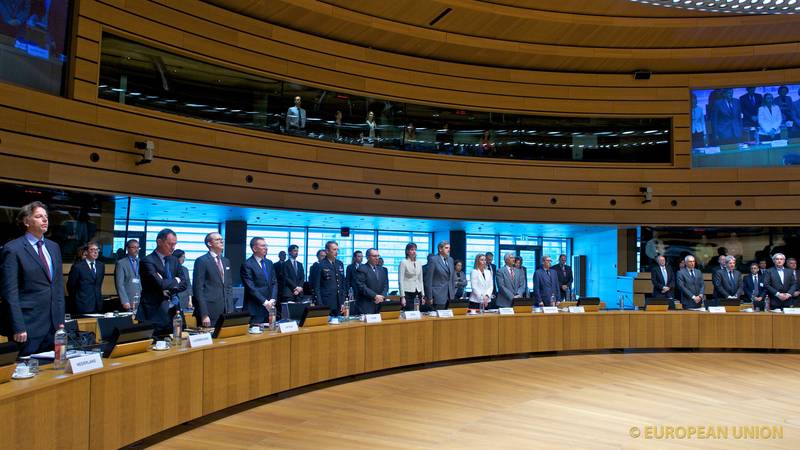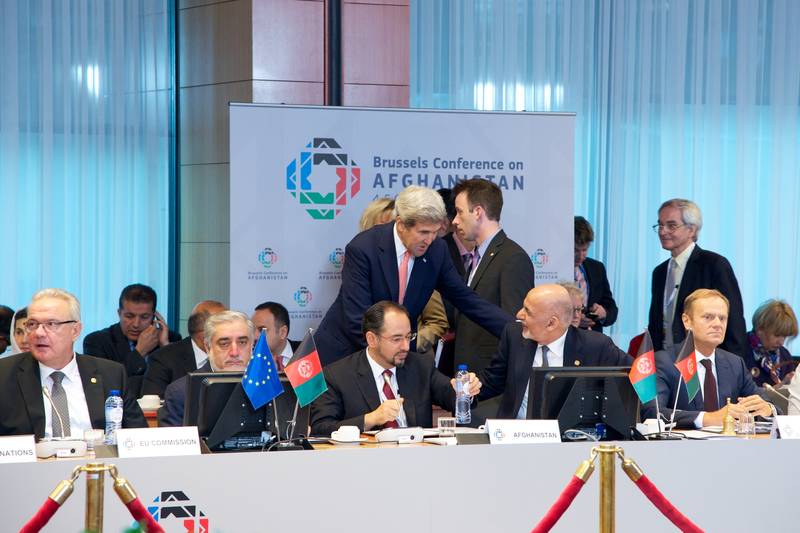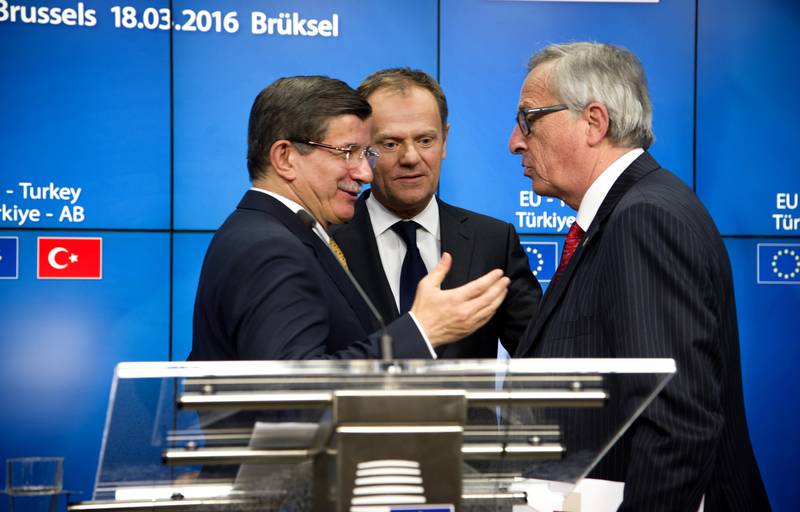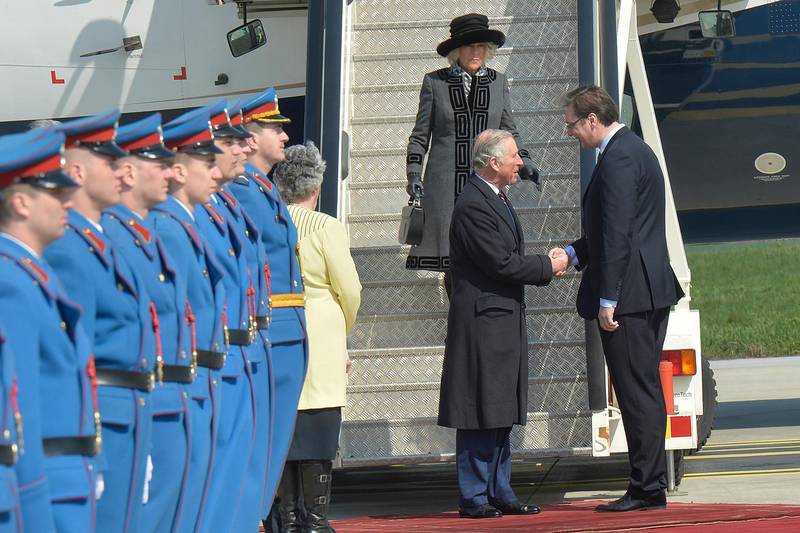1500 Lives Later EU Takes the Growing Graveyard in the Mediterranean Seriously
Adelina Marini, April 21, 2015
 Finally there is a new European level of awareness that the problem with migrant tragedies in the Mediterranean is a European one, not a problem of individual countries. This is what EU High Representative for foreign and security policy Federica Mogherini said after the joint meeting of the EU foreign and home affairs ministers in Luxembourg on the occasion of the latest tragedy in the Mediterranean in which more than 700 people drowned off the Libyan shore. With that incident on Sunday early morning the number of seekers of better life in Europe who died surpassed 1500 people since the beginning of 2015 whereas 2014 saw a record high number of victims.
Finally there is a new European level of awareness that the problem with migrant tragedies in the Mediterranean is a European one, not a problem of individual countries. This is what EU High Representative for foreign and security policy Federica Mogherini said after the joint meeting of the EU foreign and home affairs ministers in Luxembourg on the occasion of the latest tragedy in the Mediterranean in which more than 700 people drowned off the Libyan shore. With that incident on Sunday early morning the number of seekers of better life in Europe who died surpassed 1500 people since the beginning of 2015 whereas 2014 saw a record high number of victims.
Thanks to the latest loss of life the European Commission will present several weeks earlier one of its priorities - the agenda on migration. It will be officially presented on 13 May. EU Commissioner Dimitris Avramopoulos, who is responsible for migration, home affairs and citizenship, presented after the Council a 10-point plan which represents a part of the migration agenda. He sent a strong appeal to the member states to stop blaming each other because the only ones who gain from it are the populists. The ten points include various measures some of which the affected by migrant pressures countries have insisted for for a long time.
The Mediterranean patrolling and rescue operations Triton and Poseidon will be enhanced. EU was strongly criticised that they are much smaller than the Italian operation Mare Nostrum last year which had a significant success - more than 100,000 people were rescued in the Mediterranean. Fabrice Leggeri, executive director of FRONTEX, said a few weeks ago at a conference in Zagreb that in January and February there was an increase of the irregular migration. According to him, the central Mediterranean route is shifting toward the eastern route which means from Turkey to Greece or from Turkey to Bulgaria or from Turkey directly to Italy via the so called "ghost ships".
In the ten-point plan, the Commission envisages the capacity of the border agency to be significantly strengthened but it is not yet clear how much its budget will be increased by. Commissioner Avramopoulos said that evaluations are under way but underscored that the financing of FRONTEX should be the most generous because the agency plays a crucial role. Another important point from the plan is the intention to capture and destroy vessels used by the smugglers. This is going to be a civil-military operation which, however, needs a special mandate. At their meeting on 20 April the foreign affairs ministers and the interior ministers took only a political decision about that. The new mission will be based on the Atalanta operation which was fighting against the Somali pirates. According to Mr Avramopoulos, although there are no similarities between the fight against sea piracy and the fight against human trafficking the Atalanta operation contains a lot of principles which are appropriate for the future operation. Federica Mogherini added that at the moment the EU is working intensely within the UN system to secure a mandate for the operation.
 The Commission plan also envisages the European office for asylum applications to deploy teams in Italy and Greece to jointly process the asylum applications. Dimitris Avramopoulos assured that everything possible will be done the processing of applications to be no longer than 2 months. Croatia has 47 people who are at Italy's disposal to assist in processing of applications, said after the meeting the country's Foreign Minister Vesna Pusic. Alas, on the most important issues for the countries which are at the front lines of the problem - Italy, Greece and Malta - the plan is quite wishful and calls for voluntarism. Such is the case with the emergency relocation of refugees mechanism which is yet to be considered. Also the accommodation of people who need protection. On this issue the Commission proposes a voluntary pilot project. The migration commissioner emphasised that none of these measures is individual. "These are actions that require a joint effort as a true Union. I sincerely hope that now we are ready to make this effort", he said.
The Commission plan also envisages the European office for asylum applications to deploy teams in Italy and Greece to jointly process the asylum applications. Dimitris Avramopoulos assured that everything possible will be done the processing of applications to be no longer than 2 months. Croatia has 47 people who are at Italy's disposal to assist in processing of applications, said after the meeting the country's Foreign Minister Vesna Pusic. Alas, on the most important issues for the countries which are at the front lines of the problem - Italy, Greece and Malta - the plan is quite wishful and calls for voluntarism. Such is the case with the emergency relocation of refugees mechanism which is yet to be considered. Also the accommodation of people who need protection. On this issue the Commission proposes a voluntary pilot project. The migration commissioner emphasised that none of these measures is individual. "These are actions that require a joint effort as a true Union. I sincerely hope that now we are ready to make this effort", he said.
The answer of the member states is that, first, a solution should be sought of the root causes of the problem. The solution consists of three elements. The first is to enhance the EU diplomatic work on resolving the multiple wars and conflicts around Europe as well as tackling poverty and human rights violations in a large part of the world. All of these problems are sources of migrants and refugees. Second, Federica Mogherini pointed at Libya as a major channel for refugees and migrants and Bulgaria's Foreign Minister Daniel Mitov pointed out that it is important to find a solution also to the crises in Syria and Iraq as well as the urgent enforcement of the readmission agreement with Turkey. The ministers also decided, though unofficially yet, the EU to ensure the biggest possible support for the formation of a national unity government. EU is ready to provide any assistance to such a government - from humanitarian to civil, border management, institution-building. "We're not there yet", warned Ms Mogherini.
The third element is the consensus built during the meeting for a shared responsibility for the settlement of refugees. These three issues as well as the 10-point plan of the Commission will be on the agenda of the urgently called extraordinary European Council meeting this Thursday. European Council President Donald Tusk said that the meeting will build on the work of the foreign and home affairs ministers. However, he was not a big optimist about the outcome of the summit saying that it is hardly to expect that quick fixes to the root causes of the problem can be found on Thursday. It is more realistic the member states to adopt the measures agreed by the ministers and the Commission for immediate handling of the problem. Federica Mogherini, however, sent a strong appeal to the member states: "[...] this was not only a tragedy for the people losing their lives and losing their loved ones, but this could and can still be a tragedy for Europe", she said.
According to her, EU is acting only when a big tragedy occurs. "I think we don't have to be afraid of showing the limits of the institutions and of the policy decision-making processes. This is sad. This is not a justification and I'm afraid we will not find justifications, but only a major tragedy provoked sense of common urgency that raised issues that everybody was aware of up to the top of the agenda and created that political environment that then lead to action. I hope this is the dramatic alarm clock for all Europeans", the highrep added. She went even further in her frankness saying that sometimes it is hard to be a politician because always the first message is "Send them back". However, this is just another  way to kill these people. We have to face our public opinion and say that the only response to this problem is European, Federica Mogherini said.
way to kill these people. We have to face our public opinion and say that the only response to this problem is European, Federica Mogherini said.
It is all evident that this tragedy could prove a tipping point also for another renegotiation of the Dublin regulation which many of the affected by strong migrant and refugee flows countries find unfair. Although it is not included in the 10 points of the Commission plan, Commission Avramopoulos has confirmed that the Commission will revise the regulation to see which points in it are working and which are not. Those which are flawed will be renegotiated, he committed. Federica Mogherini warned, though: "EU is big, it's complicated but also very powerful. But as all big machines, not only from a structural point of view but also from political point of view, needs some time to move". She recalled that in March she succeeded to put on the agenda of the foreign ministers the issue of migration for the first time in 10 years.
 | © Council of the EU
| © Council of the EU Davutoglu, Tusk, Juncker | © Council of the EU
Davutoglu, Tusk, Juncker | © Council of the EU | © Vlada RS
| © Vlada RS